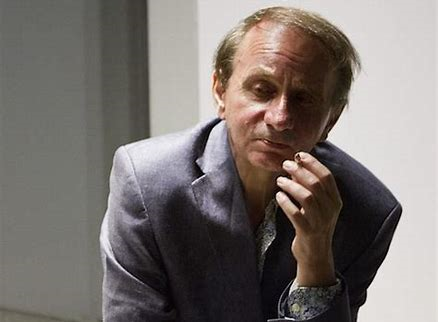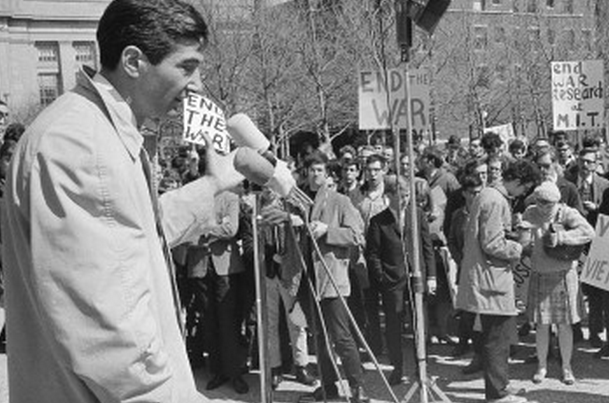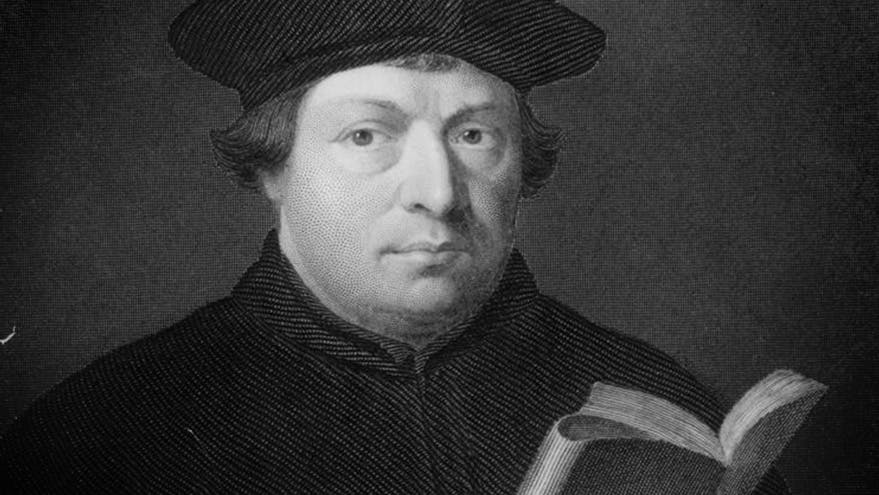
Serotonin, Michel Houllebecq; Farrar, Straus and Giroux, 2019, 320 pages
We all know what to expect from a Michel Houellebecq novel. Civilisational pessimism. Existentialist digressions. Lots and lots of bad sex. From Whatever in 1994 to Submission in 2015, these features have characterised Houellebecq’s work as dependably as Ian Fleming’s was characterised by good food, loose women, and sinister baddies.
"Houellebecq may have sunk Florent-Claude in a bog of miserablism but he cries out to us to be more."
We know as we open Serotonin that there will be a depressed middle-aged Frenchman (this time he’s an agricultural scientist). We know he will have an appalling love life (this time it’s with an appalling Japanese girlfriend). We know the novel will be set against a political crisis (this time it’s agricultural protests). So far so Houellebecqian.
Indeed, the first pages are almost self-parodic. Houllebecq’s narrator, Florent-Claude, finds videos of his young Japanese girlfriend having sex first with a group of men and then with a group of dogs. With farcical detachment he notes a Doberman acting “with the vigour normally associated with its breed.” True, Houllebecq still has some sharpness to his humour. “I began to draw up a new liberation plan,” Florent-Claude notes, “which consisted very simply (good ideas are always simple) of throwing her out of the window.” Yet there is almost an effortfulness to the man’s ennui. So densely populated by pathetic middle-aged Frenchmen is Houllebecq’s ouvre that he seems to have struggled to create a more strikingly depressed and depressing man than Bruno from Atomised or François from Submission. One can smell the novelist’s cigarettes on the page.
Florent-Claude decides to leave his flat and abandon his girlfriend. There is something of George Orwell’s Coming Up for Air in his departure, as he thinks about his younger days, his old romances, and the simple life away from the pressures of work. While George Bowling anticipated war in Europe, though, Florent-Claude is surveying its graceless decline. This, too, is classic if not clichéd Houellebecq. Even his desire to escape his body makes one think of the post-human ending of The Impossibility of an Island, while his decision to stay alive in order to enjoy different varieties of hummus is not so much on the nose as up the nostrils.
Yet Houellebecq can still surprise us. His eerie prophetic powers are displayed again when he foresees a proletarian uprising against neoliberal elites. This became reality, soon after he must have finished the book, first with the sensational “Yellow Vest” protests and then with the more recent demonstrations by French farmers. Houellebecq was writing about incels in 1994 and radical Islam in August 2001, just before 9/11, and early 2015, before the shootings at the Charlie Hebdo offices and the Bataclan theatre. How does he do it? His prescience is unmatched among living writers.
Serotonin also adds a curious quasi-political episode in which the author appears to suggest that societies are not only decadent but predicated on cruelty. Cécile, a colleague of Florent-Claude’s, is said to have visited a factory farm where she found
thousands of chickens [trying] to survive in sheds lit from above by powerful halogens, crammed together so tightly that they touched; there were no cages which meant they were ‘barn reared’; they were featherless and scrawny, their skin irritated and infested with red mites; they lived among the decomposing corpses of their fellows, and spent every second of their brief existence—a year at most—squawking with terror.
It is the same for other animals, Florent-Claude reflected, as he tried to comfort his distressed colleague, before deciding that it was far easier for her not to know. Florent-Claude adds an affecting note when he talks about
the permanent look of panic that the chickens gave you, that look of panic and incomprehension; they didn’t ask for pity, they wouldn’t have been capable of it, but they didn’t understand, they didn’t understand the conditions in which they had been called upon to live.
One suspects that in his more compassionate moments this is how Houellebecq perceives the human race. Most of us are firmly on our way to sad and suffocating ends; hardly aware, if it all, of what is happening to us. Florent-Claude has a date with another old flame, who is now ageing, fat and alcoholic, and he imagines her transitioning to drugs before a lonely and inevitable death. Yet he too appears to have been locked into his fate:
I turned around and noticed that life was over, that it had passed us by without really giving us any clear signs, then it had quietly, discreetly and elegantly taken its cards back and simply turned away from us...
But it could have been different. “I could have made a woman happy. Well, two…” Houellebecq displays new thematic depth with a character who experiences guilt. Most romances in his work end with female infidelity or random misfortune, such as when Valerie is murdered in Platform and when Christiane is taken ill and ends her life in Atomised. Here, Florent-Claude reflects on how he ruined his relationships with the one-dimensional but charming Kate and Camille. This goes some way towards making sense of his relationship with the entirely uncaring and prolifically unfaithful Yuzu, as after neglecting Kate and betraying Camille, Florent-Claude appears to have decided that she was his lot. It also adds a fresh moral dimension to the Houellebecqian world. Man is not merely consigned to disastrous circumstances but can choose them for himself. Having chosen them, however, there is no going back. One choice can be a man’s last.
One should not be too idealistic. (An improbable outcome of reading the Frenchman, perhaps, but only poor men are in danger of mistaking coins for riches.) Kate and Camille are so thinly drawn, and Florent-Claude is such a moral wretch[1], that one can hardly be sure that their relationships could have prospered. Still, one is to think, there might at least be hope for us if we commit ourselves to love.
But Florent-Claude is not just a man. Like other of Houellebecq’s pitiable bastards, he bears the weight of Western civilisation. He is childless, of course, for Houellebecq’s is a sterile future where Europeans have divorced the act of sex from the act of procreation. He is sad, of course, with the “peaceful, stable sadness” of bourgeois society. He is interested in the farmers’ protests less because of their specific grievances—the issue of global free trade crowding out French rural businesses—than in their primal rage amid the banal routines of modernity. Florent-Claude has no “way of life” to defend, and abandons his career, home and partner with no particular loss of self, so he is intrigued by people who are prepared to struggle in defence of theirs. Aymeric, a disillusioned old aristocrat, is at the centre of the protests, holding a gun: “and at that second Aymeric seemed happy, well, almost happy—he seemed in his place at the very least, his expression and relaxed pose reflected an unbelievable insolence.”
Houellebecq’s paragraphs have never glistened. Granted, I can only read him in translation, but unless he has been cursed with a sorry crop of translators his prose is full of clichés and artless constructions. Still, the patient reader can sometimes catch his eye on a glittering sentence. Houllebecq is able to make you laugh, with coal-black, coal-dry jokes like, “I drove a diesel 4×4—I mightn’t have done much good in my life but at least I had contributed to the destruction of the planet.” Driving also contributes to one of the most affecting sentences in the book, which comes after Florent-Claude has witnessed the suicide of Aymeric and the killing of ten farmers who had raised their guns against the police: “I don’t know how I managed to get back to Canville-la-Rocque the same day; there are automatic reflexes for driving; there are automatic reflexes for pretty much everything, it seems.”
Again, the Houellebecqian conflict over choice emerges. What is a matter of free will and what is “automatic”? As far as I can tell, the Frenchman holds out hope for individuals but not societies. One man and one woman might defy the crude neoliberalism of the sexual market and the managerialism of professional life, but France? Europe? The Western world? Forget it, buddy. The protest at the novel’s climax ends in a pile of bodies.
Atomised and Submission were bricks hurled through the windows of the cultural establishment: damaging its optimistic pieties about the promise of the sexual revolution, mass immigration, and technological progress. Now, though, Houellebecq is not outside throwing bricks through the windows but inside throwing food at the walls. He has been assimilated into the establishment: a Prix Goncourt winner and a recipient of Légion d’honneur. Why has this anti-modern writer been so heartily embraced by the modern world? Perhaps it is because the depths of his pessimism make him perversely unthreatening. Houllebecq is not an angry man in search of change but a cynical man who revels in mischief and mockery. This has been to his advantage artistically as he has maintained his sharp sense of ironic observation. Here, though, it seems to have made him listless. How many times can you tell the same jokes, regardless of their power, without them growing weak? Atomised, Platform and Submission were no less grim but had a freshness of theme, while The Impossibility of an Island and The Map and the Territory had structural playfulness and ingenuity. Here, Houellebecq is less exploring gloom than wallowing in it. Dull-minded critics, knowing only the environs, will not tell the difference.
If Serotonin underwhelms on the macro level, it still has elements that will endure. Houellebecq’s portrait of decline, though overegged in the beginning, becomes more perversely impressive as Florent-Claude limps towards the end of the book, deciding against suicide only because he cannot bear to leave his savings unspent.
Houellebecq’s charmless, gluttonous protagonist is a challenge to the reader; a challenge made explicit in the religiously-inflected final paragraphs.
Houellebecq may have sunk Florent-Claude in a bog of miserablism but he cries out to us to be more. Don’t settle for cheap shags and joyless haute cuisine. Houellebecq, like Phillip Larkin, has proclaimed our almost-instinct almost true: What will survive of us, if anything, is love.
Notes
[1] For instance, he discovers, in a foul scene, that a man is a child abuser and does nothing about it.

